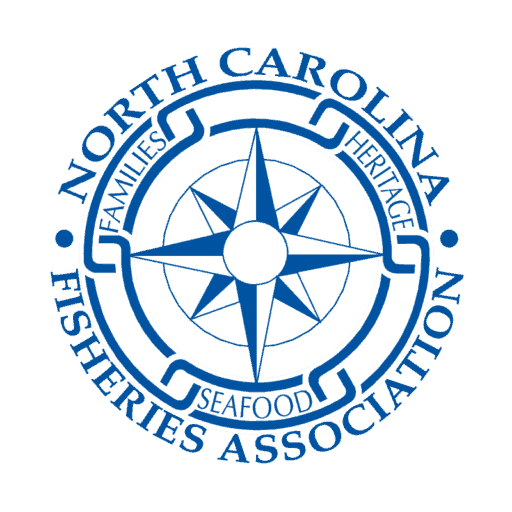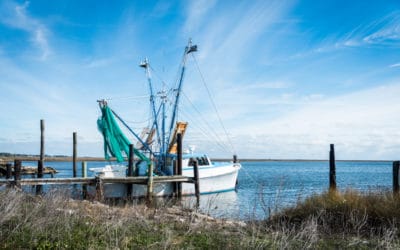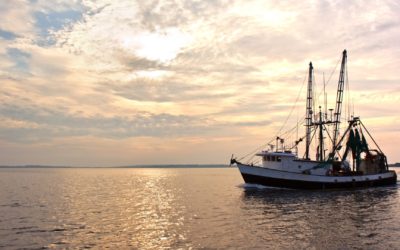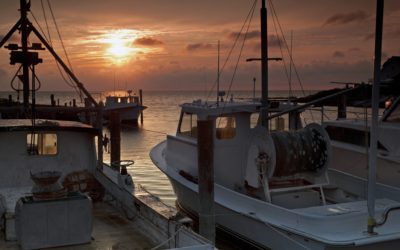North Carolina’s seafood industry has been under attack from special interest groups for decades, and even now in the midst of the COVID-19 pandemic, the attacks continue. At a time when North Carolinians should be coming together to rebuild the struggling economy, a greedy few are diligently working to rid our state of commercial fishing – a major contributor to the state’s economy.
The recent meat shortages have made many North Carolina citizens aware of the important role seafood plays in regards to domestic food production. While many families across the state have realized North Carolina seafood is a great option when other proteins are in short supply, most are unaware of the many issues that could jeopardize our fishermen’s ability to feed the masses.
While fishermen have been working hard to feed their families and yours, the North Carolina Wildlife Resources Commission (WRC) has been working to re-designate large portions of our estuaries as “Inland Waters”. If this were to happen, the newly designated waters (which have been worked by generations of fishermen) would be permanently closed to commercial fishing gears, jeopardizing many fishermen’s ability to produce food.
The WRC is also involved in another very controversial issue being pushed by the North Carolina Wildlife Federations (NCWF). In a recent resolution, the NCWF made public their desire to move the management of our coastal fisheries under the control of the WRC, giving them the sole authority to manage all of our state’s wildlife and fishery resources. The NCWF provided several reasons for supporting this change in their resolution, which failed to mention the importance of food production, but in my opinion failed to reveal their true motivation.
According to their website, the Wildlife Federation views the commercial exploitation of our fish and wildlife as a serious deterioration of public trust resource management, and the refer to commercial fishing gear as “destructive fishing gears”. Given the recent actions of the WRC, it would be foolish to assume they do not share the Wildlife Federation’s anti-commercial ideology, which sheds some light on what their true motives might be. If the WRC were to take over management of our coastal fisheries, I have no doubt they would (with support from the Wildlife Federation and Coastal Conservation Association) move swiftly to ban commercial gears in all state waters.
A state’s ability to produce its own food is vitally important and cannot be overemphasized, especially now, when the pandemic has exposed many weaknesses in our nation’s food supply chain. Simply restricting a single gear can greatly reduce fishermen’s ability to produce seafood; This was especially evident in the years following Florida’s 1995 net ban. In the aftermath of the net ban, commercial seafood landings dropped from 52 million pounds during 1992-1994 to 18 million pounds from 1996-1998, forcing many fish houses to import seafood in order to meet the local demand.
North Carolina’s commercial landings have already been directly impacted by gear restrictions, and opponents of commercial fishing are quick to use the decreased landings as proof that our fisheries are failing, but are not so quick to admit that management measures they pushed are responsible for the decreased harvest. While many of our state’s finfish fisheries have been regulated to the brink of extinction, North Carolina’s shrimp trawl fishery has remained viable, making it a prime target for special interest groups. In a seven-year period (from 2013-2019), three petitions for rulemaking were submitted (two by the NCWF) to severely restrict shrimp trawling in NC waters. While all three petitions ultimately failed, they were successful in some regards.
The constant threat of being shut down has caused many existing fishermen and potential new fishermen not to invest their hard-earned dollars into the fishery, limiting growth and production in one of the state’s most valuable industries. One year after the last petition failed, at a time when unemployment and food production are being discussed globally, the efforts to put fishermen out of business continue. On May 13th, 2020, Joe Albea – host of Carolina Outdoors (which coincidentally is sponsored by the Coastal Conservation Association and WRC), sent a letter of intent to sue the state and six vessel owners, claiming that shrimp trawling in NC violates the Clean Water Act, of all things. After thoroughly reviewing Mr. Albea’s claims, I believe his lawsuit if filed will fail, like the previous efforts to stop shrimping – but I feel there will be serious impacts.
The impacts I’m referring to are the social impacts that come from being publicly vilified by your neighbors as “rapists of the resource”. Honest hard-working men and women who depend on our marine resources for their living are being publicly portrayed as criminals who poach and deplete the resource without mercy. The anxiety and stress resulting from these relentless attacks destroy marriages and force many fishermen off the water to look for more secure occupations. After all, who wants to work in an industry that has been portrayed in such a negative light? While there is no scientific data to support these claims, the fact is that fisheries “science” has been pushed aside and political science has taken center stage, as smear tactics now have more of an impact on management decisions than does fisheries data.
By being complacent, North Carolinians have allowed a very vocal minority to hold an entire industry hostage, limiting production and growth while slowly choking the life out of our state’s seafood industry. It’s time for us all to take our state motto “To Be Rather Than To Seem” to heart. It’s not enough to seem like you support North Carolina’s commercial fishermen! Whether you’re governor, a member of the NC General Assembly, or just a citizen of this great state, you need to be aware of the issues. Be vocal in your support and be firmly behind North Carolina’s seafood producers if this industry is to survive! Nothing less than our state’s ability to produce food from its waters is at stake and if the past few months have taught us anything, it’s shown us how vitally important domestic food production really is.
Glenn Skinner
Executive Director, North Carolina Fisheries Association, Inc.

Related Articles
A Word From The Chairman
Related Articles Stay Up to Date With The Latest News & Updates Join Our Newsletter
A Word From Jerry Schill
Related ArticlesStay Up to Date With The Latest News & UpdatesJoin Our Newsletter
An Update From Glenn
Related Articles Stay Up to Date With The Latest News & Updates Join Our Newsletter



